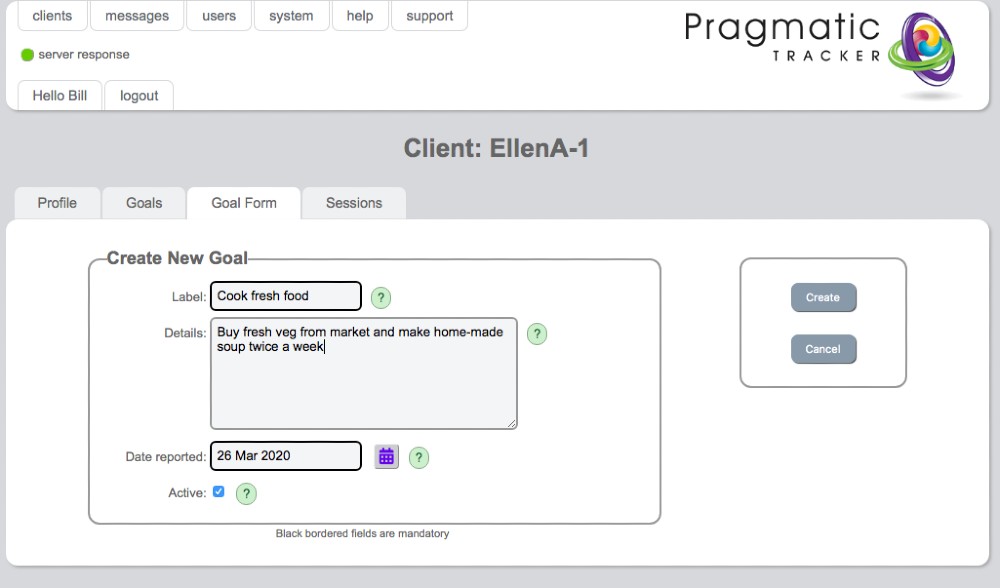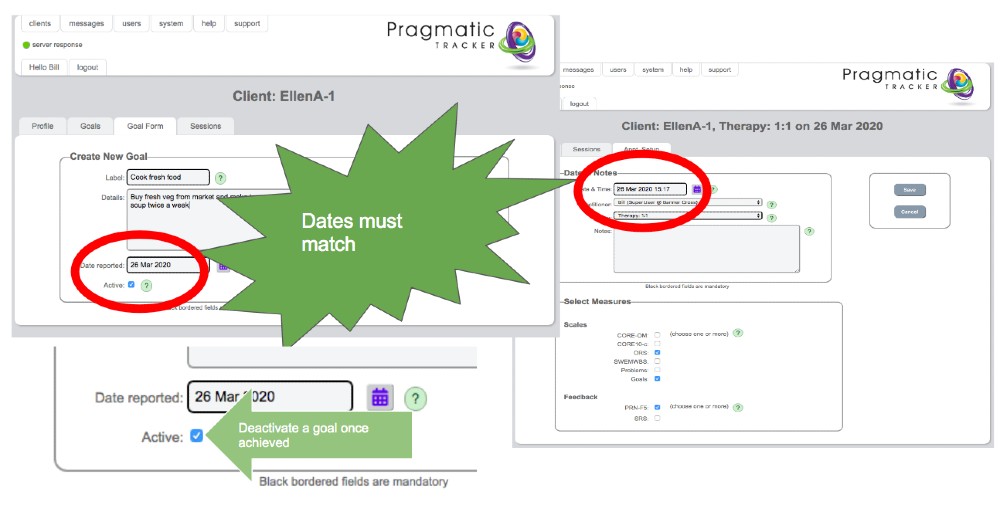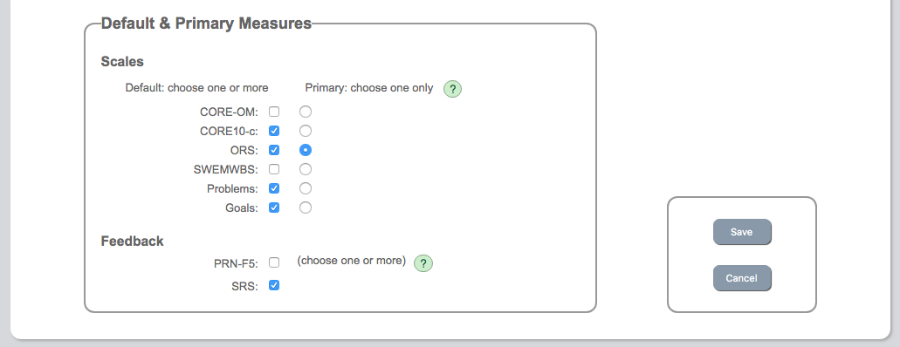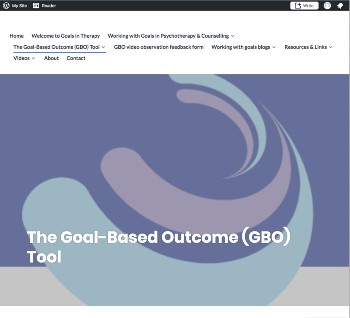Working with goals
Since the launch of Pragmatic Tracker in 2011 we've been passionate about the importance of keeping the focus on what's important to our clients, their priorities, preferences, sense of direction, their frustrations, wishes and desires around seeing change in what's important to them. Pragmatic Tracker is a valuable tool in helping us as practitioners, case workers, clinicians and coaches to keep our focus around the needs of our clients. We've always therefore had the ability to measure the goals as set by our clients as well as the ability to measure the improvements in their problems.
Goal based outcomes
More recently, we've become aware of a growing body of literature in this area and, in particular, the work of Professor Duncan Law around 'Goal-based outcomes'. We've made some minor adaptions in version 3 of Pragmatic Tracker so that using the 'Goals' feature in Pragmatic Tracker falls into line with Duncan Law's paper-based system.
"Recent evidence suggests that working with goals in counselling and psychotherapy can support positive therapeutic change. Goals can empower clients and give them hope: helping them feel that they have the capacity to act towards achieving their desired futures. Goals can help focus, and direct, clients’ and therapists’ attention, building a better therapeutic alliance. Through negotiating and setting goals, clients can develop a deeper insight into what it is they really want in life: a crucial first step towards being able to get there.
Policy developments in both child and adult mental health services support the use of goals in therapy. Goal-setting and goal-tracking can help to ensure that therapy is personalised to the individual client: so that they are working towards objectives that are of genuine importance to them."
From the introduction to 'Working with goals in psychotherapy and counselling', edited by Mick Cooper and Duncan Law
Adding a new goal
Here you may add or edit a goal, asking the client for an appropriate label and capturing more detail if you wish.
 Remember to tick 'goals' on the appointment form for any session you wish to record goals in. You can also tick 'goals' in 'Profile' so that it is always ticked by default in every session.
Remember to tick 'goals' on the appointment form for any session you wish to record goals in. You can also tick 'goals' in 'Profile' so that it is always ticked by default in every session.

IMPORTANT The date a goal is raised MUST be the SAME as the date of the session it's raised in. Otherwise it will NOT appear on the session form.

 Whatever you write as the goal label and goal details is what will be seen by your client when they next score the goal item. The words should be the client's words and the detail should be in the 1st person.
Whatever you write as the goal label and goal details is what will be seen by your client when they next score the goal item. The words should be the client's words and the detail should be in the 1st person.
Common issues with Goals
You must make sure that you have selected 'Goals' for any particular session you want to record their scores in...

...AND you MUST make sure that the date the goal is raised matches the date of the session
 Goals - Getting those dates right
Goals - Getting those dates right
Getting the dates right
The first time you want to use the goals feature it's important that the date you create the goal matches the session date you recorded the goal in. Pragmatic Tracker defaults to 'today's' date. This is no problem if you write your notes up on the same day as a session but if, for instance, you're adding a goal the day AFTER a session (maybe you didn't have time to write the notes up) then you must make sure the date the goal is reported is the same as the session date.
Deactivating a goal
Perhaps a client has reached a particular goal, or perhaps they don't want, right now, to work on it and so don't wish to be asked about it...well, you can deactivate it by simply unticking the little box on the goal form.
Remember that you are, in effect, building a new 'measure' labeled 'Goals for your client. Each 'goal' raised becomes an item in the measure.
 Scoring goals from the client's perspective
Scoring goals from the client's perspective


